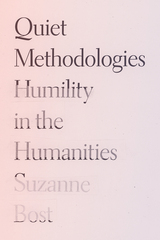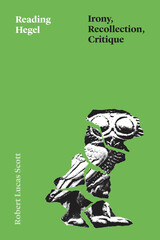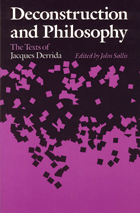
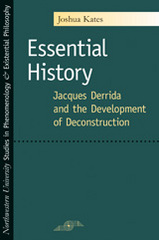
A fundamental reinterpretation of Derrida's project and the works for which he is best known, Kates's study fashions a new manner of working with the French thinker that respects the radical singularity of his thought as well as the often different aims of those he reads. Such a view is in fact "essential" if Derrida studies are to remain a vital field of scholarly inquiry, and if the humanities, more generally, are to have access to a replenishing source of living theoretical concerns.

Rodolphe Gasché, one of the world's foremost—and most provocative—authorities on Jacques Derrida, has news for deconstruction's devotees, whose traffic in the terms of “difference” signals privileged access to the most radically chic of intellectual circles: they do not know their Derrida. A deconstruction of the criticism that goes by deconstruction's name, this book reveals the true philosophical nature of Derrida's thought, its debt to the tradition it engages, and its misuse by some of its most fervent admirers.
Gasché's Inventions of Difference explodes the current myth of Derrida's singularity and sets in its place a finely informed sense of the philosopher's genuine accomplishment. Derrida's recent turn from philosophical concerns to matters literary, historical, and political has misled many of his self-styled followers, Gasché contends. Though less overtly philosophical, Derrida's later writings can be properly understood only in relation to a certain philosophical tradition, which Inventions of Difference cogently traces.
Gasché shows that terms like “difference” and “other” are devoid of meaning outside the context of identity, a context that draws not only on Husserl's phenomenology and Heidegger's writings but also on the work of Hegel. By setting forth this affinity with Hegel, Gasché clarifies the philosophical weight and direction of Derrida's recent work and the philosophical engagement of his larger project. His book puts a stop to the loose talk of deconstruction and points to the real rigors and pleasures of knowing Derrida.
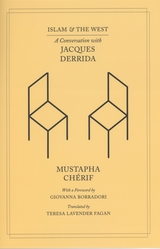
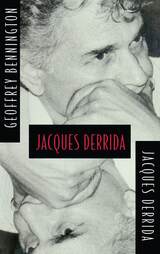
"Bennington is a shrewd and well-informed commentator whose book should do something to convince the skeptics . . . that Jacques Derrida's work merits serious attention."—Christopher Norris, New Statesman & Society
"Geoffrey Bennington and Jacques Derrida have presented a fascinating example of what might be called post-structuralist autobiography."—Laurie Volpe, French Review
"Bennington's account of what Derrida is up to is better in almost all respects—more intelligent, more plausible, more readable, and less pretentious—than any other I have read."—Richard Rorty, Contemporary Literature
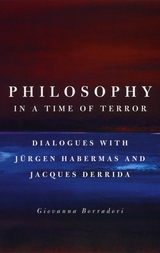

READERS
Browse our collection.
PUBLISHERS
See BiblioVault's publisher services.
STUDENT SERVICES
Files for college accessibility offices.
UChicago Accessibility Resources
home | accessibility | search | about | contact us
BiblioVault ® 2001 - 2025
The University of Chicago Press


